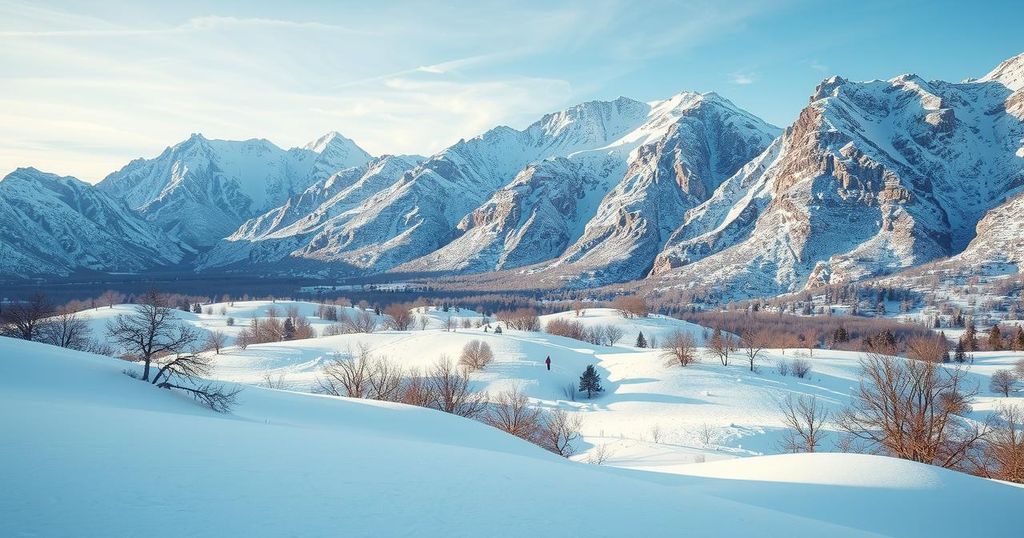Impact of Climate Change on Winter Days in the Mountain West
Climate change is causing a reduction in winter days across the Mountain West, with areas like Arizona, New Mexico, and Nevada losing up to ten below-freezing days annually. Higher elevations in states like Wyoming experience less drastic losses, yet the overall trend poses challenges to ecosystems and winter sports, necessitating urgent attention to climate impacts.
Recent findings from Climate Central indicate that winter is becoming significantly shorter in the Mountain West region, with projections suggesting a reduction of between two and ten days this year. The analysis reveals a notable decline in below-freezing days, primarily affecting the Southwest states, including Arizona, New Mexico, and Nevada, which have experienced an annual average loss of about ten such days due to their naturally warmer climates.
Kristina Dahl, the Vice President of Science at Climate Central, highlighted the implications of minimal temperature increases on precipitation patterns, stating, “And so a little bit of warming can have a much bigger impact on things like whether precipitation falls as rain or snow.” In contrast, higher elevation areas such as Utah, Colorado, Montana, and Wyoming are experiencing less drastic losses in winter days. Specifically, Wyoming has recorded an average decrease of only two below-freezing days. However, Dahl emphasized that Wyoming, while still cooler than other regions, is also warming.
Idaho and Colorado present similar trends, each losing approximately four winter days on average. If these climatic shifts continue, ski resorts may face challenges in maintaining operational seasons, which could have cascading effects on local ecosystems. Dahl remarked, “If it is warm in the winter and flowers bloom early, the pollinators may not be there yet to pollinate those flowers and sustain crops.” Additionally, a reduction in snowfall jeopardizes water resources, raising further concerns for the region’s ecological stability.
This report underscores the urgent need to address climate change’s impact on winter weather patterns in the Mountain West, reflecting broader environmental challenges that require immediate attention and collaborative solutions.
The Mountain West region has recently been highlighted in reports examining the effects of climate change on seasonal weather patterns. The region, known for its picturesque winters and skiing opportunities, has begun to experience a noticeable decrease in winter days, primarily due to rising temperatures associated with climate change. This trend poses significant risks not only to recreational industries like skiing but also to the broader ecological systems that depend on consistent winter weather and snowpack for water supply and plant health.
The analysis of winter day reductions in the Mountain West paints a concerning picture of climate change impacts. With warmer winters leading to fewer below-freezing days, regions such as Arizona, New Mexico, and Nevada are experiencing significant losses. While higher altitudes in Utah, Colorado, Montana, and Wyoming mitigate some of these effects, the overall trend threatens local ecosystems, water supplies, and winter-dependent economies. Immediate awareness and action are imperative to address these challenges.
Original Source: www.upr.org




Post Comment